Your air conditioner is a significant investment in your family’s comfort, so it makes sense that you want to keep it running at peak performance. However, in order to get the most out of your AC unit, you need to properly maintain it year-round. That can mean a number of things, from having a professional technician inspect your unit to cleaning it every season.
One of the easiest things you can do to keep your AC unit running smoothly is to clean or replace your air filter regularly. But, how often should you change the AC air filter? There are a few different factors you may need to consider, from your home size to the quality of your indoor air.
Signs to Change the Air Filter in Your Air Conditioner
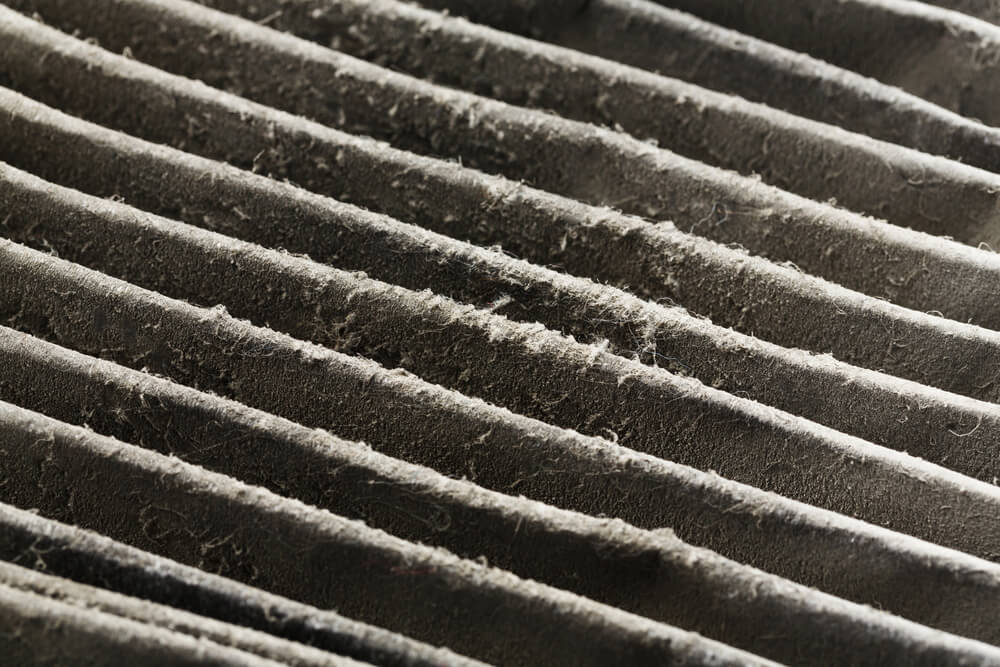
You need to make sure you know when to change your AC unit’s air filter to keep comfort levels high and energy bills low. However, most people don’t know how often to check if their air filters are dirty.
If you notice any of the following signs in your home, you should promptly replace your air filters:
- Decreased Airflow: If you notice weaker airflow coming from your vents than usual, it could be a sign that your air filter is dirty and restricting airflow.
- Visible Dirt and Dust: Inspect the air filter to reveal if there is a buildup of dirt, dust, and debris. Any of these would mean your air filter is ready to be replaced.
- Allergy Symptoms: If you or your family members experience increased allergy symptoms, it could be from pollen, dust, or other allergens circulating in the air due to a dirty air filter.
- Higher Energy Bills: A dirty air filter can force your air conditioner to work harder to maintain the desired temperature, leading to increased energy consumption and higher utility bills.
- Unpleasant Odors: A musty or funny smell coming from your vents may indicate that the air filter is contaminated and needs to be replaced to improve indoor air quality.
Different Factors That Can Affect How Often You Replace Air Filters
Every home and family is different. You may have a large home with three kids, two dogs, and a cat. However, your neighbor may live alone with no pets. These factors make a huge difference in how often to change the air filter in your AC unit.
If you have an average one to three inch air filter, the rule of thumb is that you should change it every two months. However, you may need to change or clean your air filters more often, depending on:
- The kind of filter your air conditioner requires
- The air quality of your home and city
- The number of pets you own
- The amount of people in your household
- Whether you suffer from allergies
- Whether you smoke cigarettes in or near your home
For example, if you have several pets, your air filter may get clogged faster due to shedding. Or, if you live in an area with fewer cars around (and thus, less air pollution), you may not need to replace your air filter as often.
If you’re still unsure about how often you need to change the air conditioner filter, reach out to a technician who can inspect your unit and tell you your exact needs.
Why It’s Important to Replace Your Air Filter Regularly
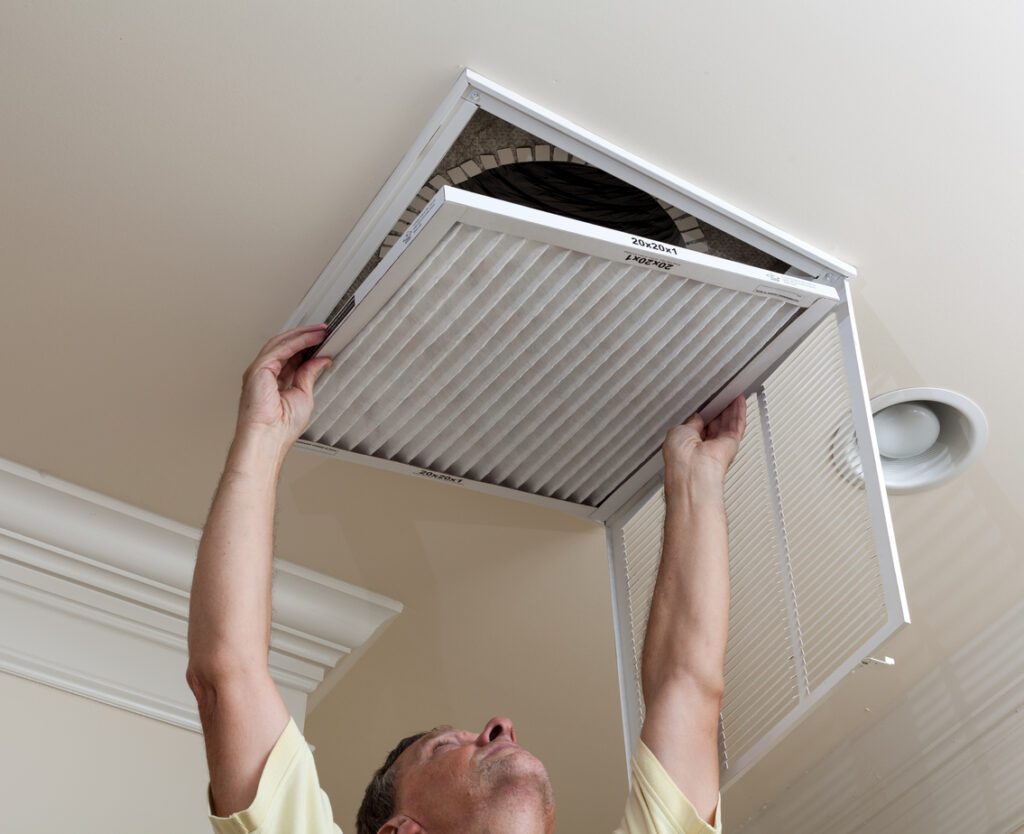
Despite continued suggestions from HVAC technicians and experts, many people still choose not to replace their air filters regularly, instead allowing them to become clogged and dirty. Then, their AC units will stop working, causing even bigger and more expensive problems.
Changing your air filters is a routine part of cooling maintenance basics and should never be neglected. Investing in routine maintenance is beneficial to homeowners because it helps them save money in the long run and protects their air conditioning systems.
During a standard air conditioning maintenance visit, an experienced HVAC technician will:
- Clean the AC condenser and evaporator coils
- Check for refrigerant leaks or frozen coils
- Clean the condenser unit and fan belt
- Inspect the electrical system
- Lubricate moving parts
- Change dirty air filters
How to Change an AC Air Filter
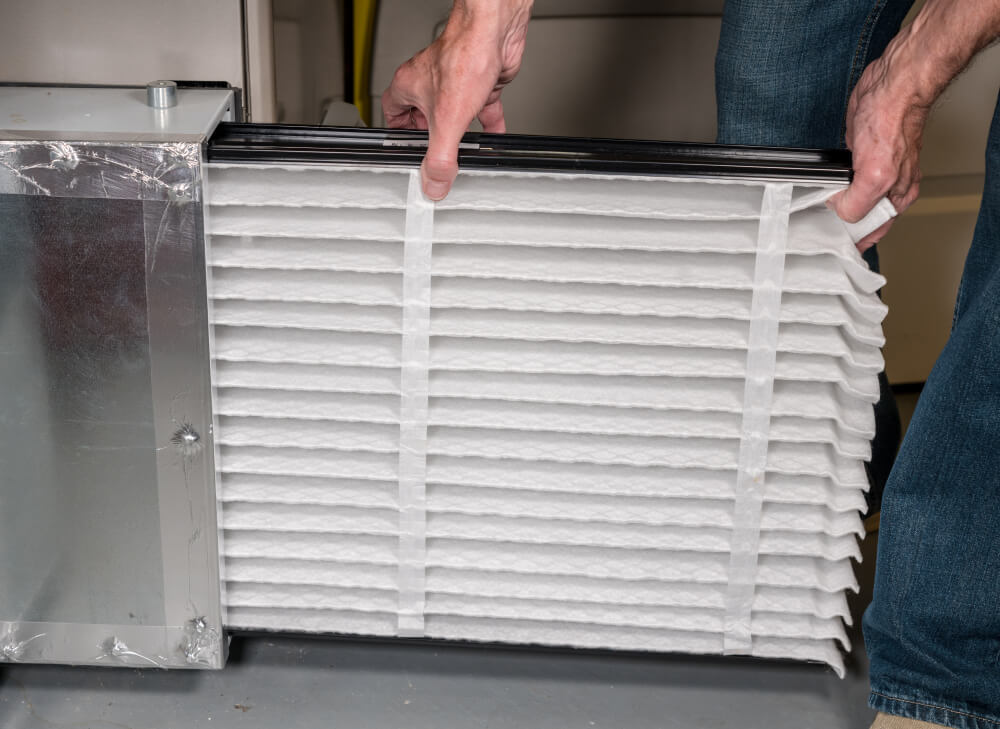
Changing an air filter is an easy task to do by yourself. If you have never changed the air filter in your AC unit, follow these steps to determine if you need to promptly change the filter:
- Turn Off AC System: Before you begin, turn off your air conditioning system to ensure safety.
- Locate the Air Filter: Find the air filter housing, which is typically located near the return air duct or within the AC unit itself.
- Remove the Old Filter: Slide out the old air filter from its slot. Pay attention to how the filter is positioned so you can install the new one correctly.
- Dispose of the Old Filter: If your old filter is disposable, place it in a trash bag or recycling bin. If it’s reusable, follow the manufacturer’s instructions for cleaning and storage.
- Insert the New Filter: Slide the new air filter into the slot, making sure it fits securely. Ensure that the arrows or markings on the filter indicate the direction of airflow, typically pointing towards the blower motor.
- Close the Filter Housing: If the housing has a cover or door, securely close it to prevent air leaks.
- Turn On AC System: After replacing the air filter, turn your AC system back on and monitor for any unusual noises or issues.
If you are unsure about your specific unit’s air filter placement or need additional maintenance services, reach out to GAC Services. We provide air conditioning maintenance services in Gaithersburg, Frederick County, Montgomery County, and Howard County, Maryland.
No matter your style of unit, we can change your air filters and perform any other tasks you need. Contact us today to schedule your appointment.
PPSU Sheet Prod Flower Yincang
Timing Belt Conveyor: Precision and Efficiency Unleashed
In the realm of conveyor systems, the integration of timing belt conveyors marks a paradigm shift towards precision and efficiency. As a critical component, timing belt conveyors redefine automated processes, ensuring seamless material handling across various applications.
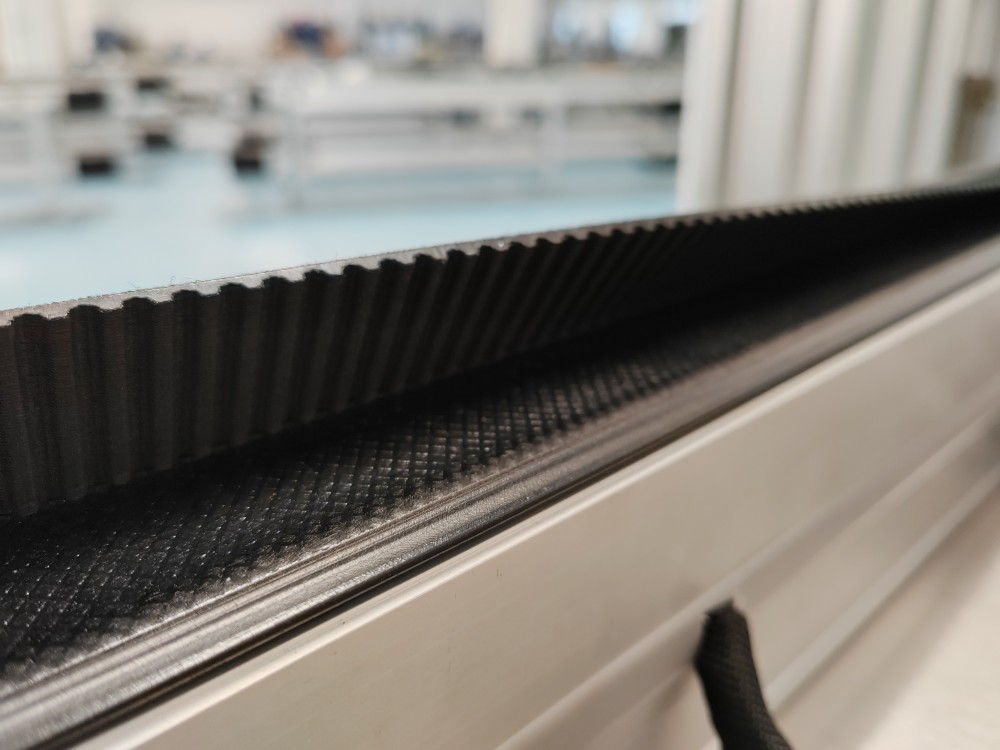
Precision Timing in Automation
The heartbeat of automated conveyors, timing belt conveyors play a pivotal role in maintaining precision throughout the material handling process. This is especially crucial in assembly line conveyors and factory setups, where accurate synchronization is essential for the success of automated operations.
Versatile Handling Solutions
Timing belt conveyors offer versatility in handling a myriad of materials. From tray conveyors to battery conveyors, their adaptability enhances the efficiency of production lines. The timing belt, in conjunction with conveyor motors, facilitates controlled and synchronized movements, ensuring optimal production flow.
Engineering Excellence and Design
Precision in design sets timing belt conveyors apart. The intricate engineering of these conveyors, coupled with conveyor positioning technology, guarantees accurate location and rotation of materials. The result is a conveyor system that aligns with the unique needs of each industry, contributing to streamlined production processes.
Timing Belt Conveyor in Vitrans Systems
Vitrans pioneers the use of timing belt conveyors in conveyor system designs, setting new standards in industrial automation. Compared to competitors like Bosch, Dorner, and Flexlink, Vitrans excels not only in quality but also in affordability. Our timing belt conveyor systems showcase a perfect blend of engineering excellence and cost-effectiveness.
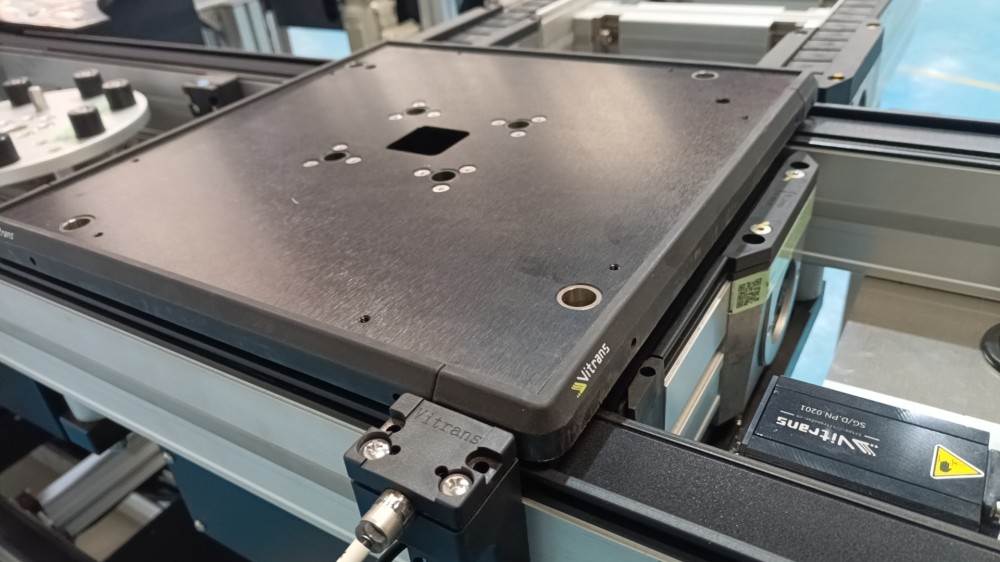
Vitrans Advantage: Precision and Competitive Pricing
Choosing Vitrans means opting for a conveyor system that prioritizes precision and efficiency. The timing belt conveyor designs ensure optimal material transport, positioning, and rotation, contributing to an elevated production experience. Vitrans stands out with competitive pricing, providing manufacturers with an advantageous blend of quality and affordability.
Elevate Efficiency with Vitrans Timing Belt Conveyors
In conclusion, the application of timing belt conveyors signifies a significant advancement in conveyor system technology. Vitrans, as a leading manufacturer, propels industrial automation forward by incorporating precision timing into its conveyor designs. Choose Vitrans for a conveyor system that not only meets but exceeds industry standards, providing an unparalleled combination of precision, efficiency, and affordability.
Notonthehighstree Notonthehighstree Notonthehighstree Notonthehighstree
Bossgoo(China)Tecgnology.(Bossgoo(China)Tecgnology) , https://www.tlqcjs.com